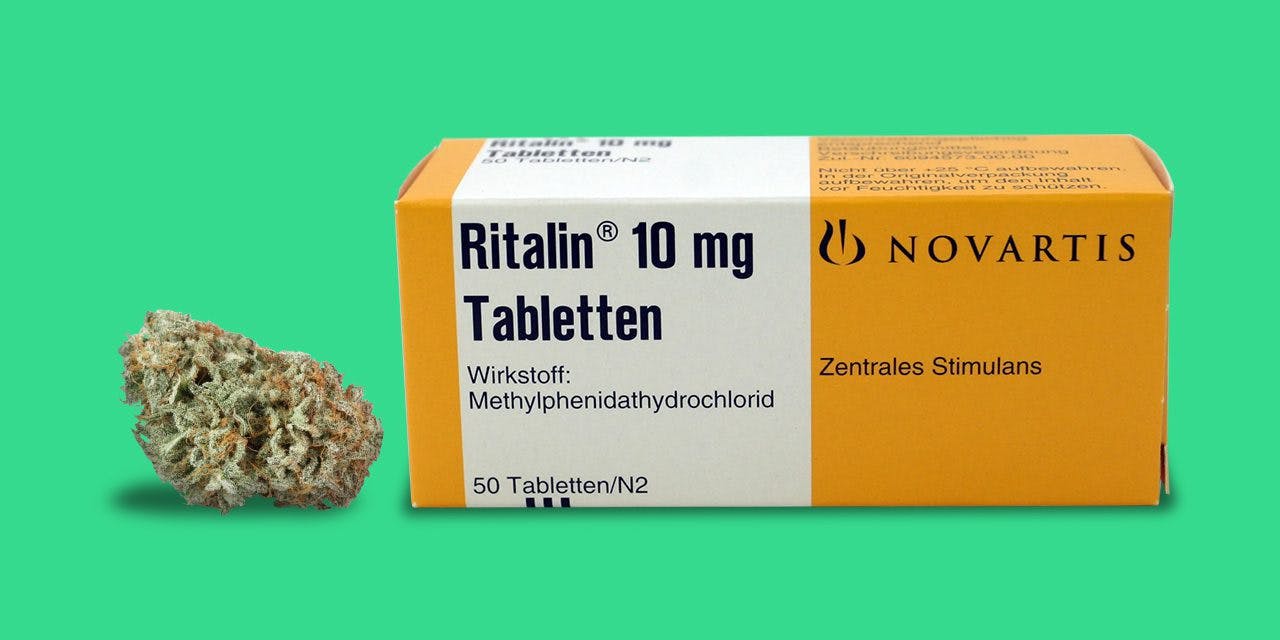ADHD , Adderall and Ritalin
If you don’t have ADHD, Adderall and Ritalin won’t work for you
When given these medications in a recent study, people without ADHD were more motivated to solve complex problems—but less accurate.
Adderall and Ritalin, medications used to manage symptoms of attention deficit/ hyperactivity disorder, have long been considered study aids for people without ADHD. Whether it’s taking Ritalin to cram for a test, or Adderall to manage working a night shift, these medications have acquired a reputation as "smart drugs," capable of helping people perform better at complicated tasks, even when they don’t have ADHD, a perception that has persisted in spite of a lack of evidence.
Do they help? In a word: nope.
"People have the false idea that these are cognitive enhancers, that it doesn’t matter whether you have a diagnosis or not, that this is going to improve your performance," says Cesar Soutullo, a professor of psychiatry at UTHealth Houston, who specializes in treating ADHD.:max_bytes(150000):strip_icc()/adhd-in-young-children-20844-a5a7da14c01543ce9b90d1d1d6a64757.png)
In a recent study, published in the journal Science Advances, participants without an ADHD diagnosis were given the medications Ritalin, Adderall, Provigil or a placebo, after which they were asked to solve a complex problem, one that involved calculating the weights and values of items to put in a knapsack with limited space.
As the researchers showed, although participants worked much harder to solve the problem after taking a dose of ADHD medication, compared to taking a placebo, the accuracy of their attempts decreased. “They were spending more effort, but their performance was not going up,” says Peter Bossaerts, a professor of economics at the University of Cambridge, and a co-author of the paper.
For people without ADHD, "taking these medicines may motivate you to perform better, but the end result is not better," says Asim Shah, a professor of psychiatry and behavioral sciences at Baylor College of Medicine. "Your cognition is not better, your performance is not better."
For people with ADHD, these drugs yield a different outcome
Although ADHD medications such as Ritalin and Adderall won’t make a person smarter, there is a significant amount of evidence showing that, when used appropriately for the management of ADHD, they can have a profound impact on a person’s quality of life. The symptoms of ADHD, which is a neurodevelopmental disorder, first show up during childhood, but is a lifelong disorder, for which many adults will continue to need medication throughout the course of their life.
ADHD impacts a person’s executive functioning, which is the ability to plan, prioritize, and execute complex tasks, whether it’s completing a large project, juggling multiple priorities, or working toward a long-term goal. Executive function requires a combination of working memory, flexible thinking, and self-control all of which can be impaired in people with ADHD.
“If you are falling behind because of lack of focus or procrastination, get a proper evaluation,” which can then be followed by treatment, says Jon Stevens, a psychiatrist who specializes in treating ADHD. For people with ADHD, a proper diagnosis, followed by treatment, has been shown to improve their overall quality of life in several ways.
People with untreated ADHD have poorer academic performance compared to their peers without ADHD, while treatment a mix of cognitive behavioral therapy and medication can yield academic improvements. For adults whose diagnosis was missed during childhood, a diagnosis and treatment, which included medication, was shown to result in an improved quality of life, including increased functionality, productivity, and self-esteem.
The right levels of dopamine are key
Medications such as Ritalin and Adderall act to increase dopamine levels in the brain, which is thought to help correct some of the underlying deficits caused by ADHD. Dopamine, which is a neurotransmitter that acts to regulate feelings of pleasure and motivation, is involved in several mental processes, such as memory, mood, motivation, and focus, all of which are impacted in people with ADHD. However, as with many aspects of physiology, having too much can be just as bad as having too little. “There’s a lot of evidence that the medicine is activating parts of the brain that are under-activated, but the thing is, they need to be under-activated to go to normal,” Soutullo says. “If they are normal, and then you push it, then you are going in the wrong direction.”
In his clinical experience, Soutullo has seen both the effects of too little dopamine, and too much. For his patients with ADHD, a dosage that is too high will cause patients to start getting jittery, anxious, and restless, Soutullo says. “That is what happens with people who don’t have ADHD, who have a good level of dopamine, and they push it,” Soutullo says.:max_bytes(150000):strip_icc()/adhd-attention-deficit-hyperactivity-disorder-included-definition-symptoms-traits-causes-treatment-5084784_final-bc92546bc9df465ea7f13fc423c2085b.jpg)
“When you have too little dopamine, you have fatigue, low interest, and low attention,” Soutullo says. “It has to be somewhere in-between, so it’s enough.”
As Stevens notes, finding the right dosage and medication for a person with ADHD can be tricky, as the rate at which a person metabolizes the drug can vary widely. “You can’t look at someone, and say this is what their dose should be,” Stevens says. In his own clinical experience, he’s had patients experience significant side effects on the lowest possible dosage, and he’s also had patients who barely experienced effects on the highest possible dosages. “The metabolism of these medicines varies widely,” Stevens says.
For people without ADHD, who may be tempted to take Ritalin or Adderall as a study drug, this can end up making them feel jittery and anxious, causing them to focus too much on smaller, less-important details, while losing the bigger picture. Depending on how fast or slow their body metabolizes the drug, they can also experience some significant side effects.
:max_bytes(150000):strip_icc()/what-is-adhd-masking-5200863_final1-5bdf8d510df043acb02181cdc43a3719.png)
“If you don’t have a focus problem, a stimulant is just going to make you feel overstimulated and prone to errors,” Stevens says. “People should think twice before borrowing their friend’s Adderall or Ritalin to cram for a test.”
Source
https://www.psychiatry.org/patients-families/adhd/what-is-adhd#:~:text=Attention%2Ddeficit%2Fhyperactivity%20disorder%20(ADHD)%20is%20one%20of,in%20the%20moment%20without%20thought).
https://www.cdc.gov/ncbddd/adhd/facts.html
https://www.nimh.nih.gov/health/topics/attention-deficit-hyperactivity-disorder-adhd
https://www.healthline.com/health/adhd
https://www.healthline.com/health/adhd/adderall-effects-on-body#:~:text=For%20people%20with%20ADHD%2C%20Adderall,the%20brain%20reinforce%20rewarding%20behaviors.
https://www.therecoveryvillage.com/adderall-addiction/adhd-and-adderall/

































